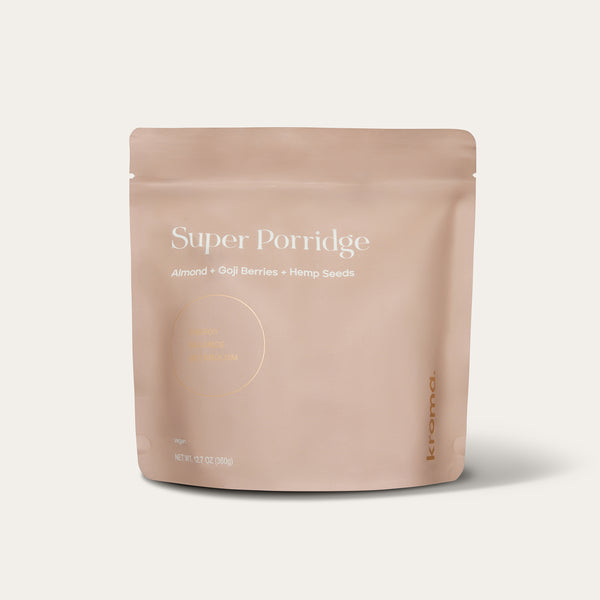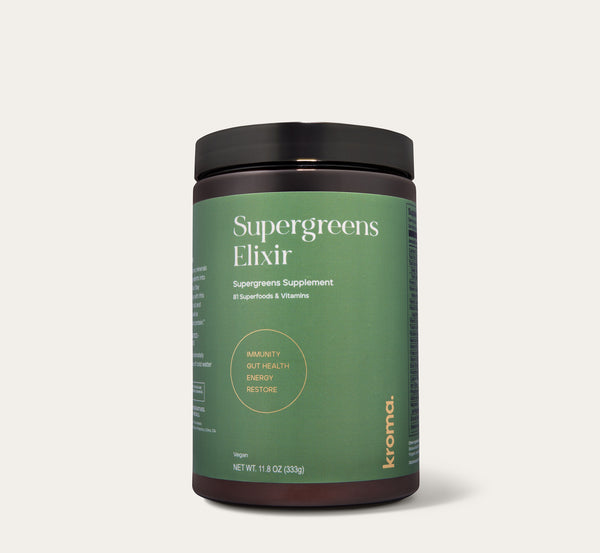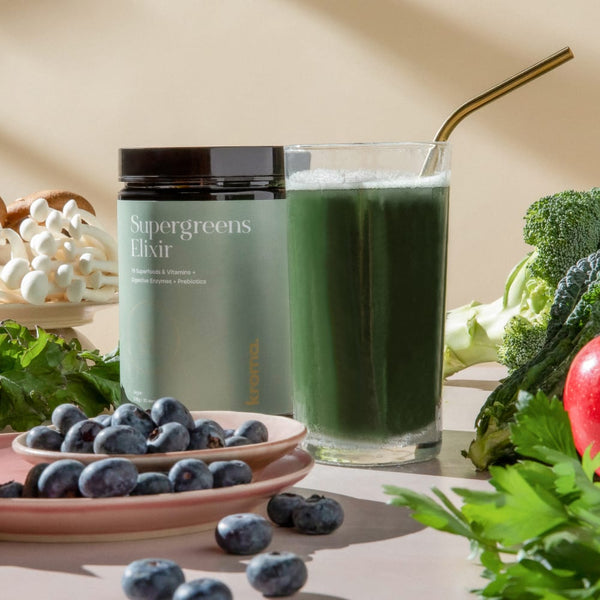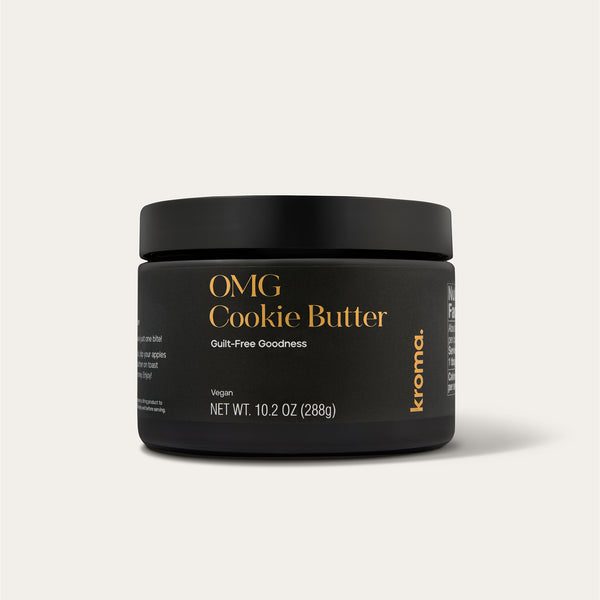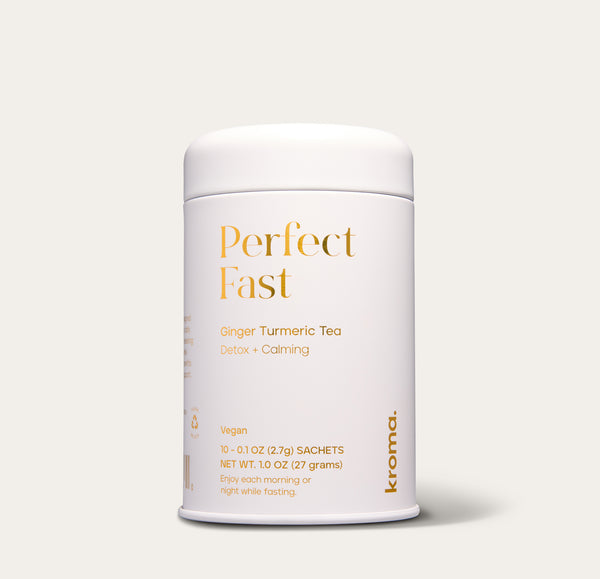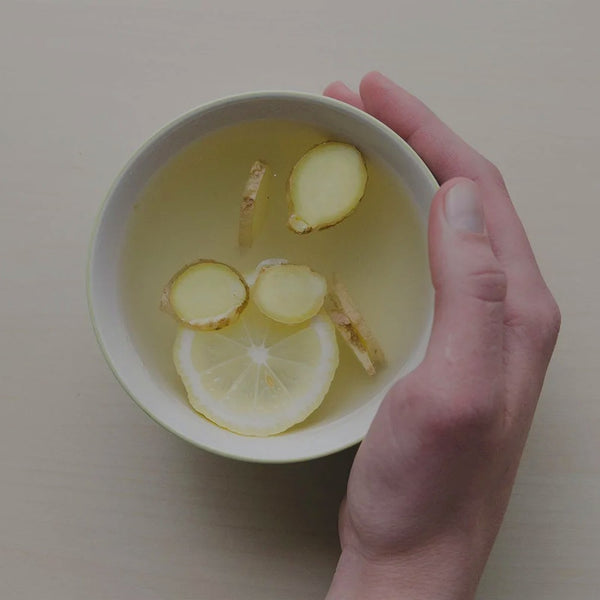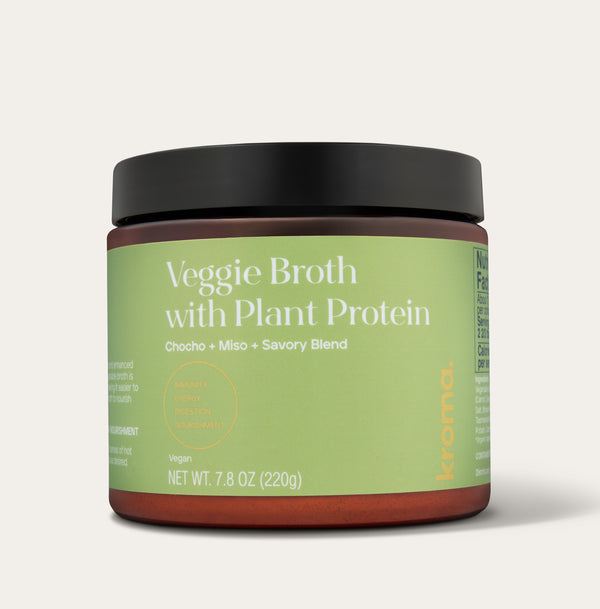Eastern medicine has utilized medicinal mushrooms for centuries to help with health concerns and illnesses. Today, Western medicine studies medicinal mushrooms for their therapeutic properties and potential to contribute to health and well-being.
Lion’s mane mushroom specifically, may provide various mental and physical health benefits; from blood sugar and immunity support, to cognitive function and neuroprotective benefits. Research suggests that lion's mane mushroom benefits include potential support for blood pressure regulation, as well as its ability to enhance libido and provide a natural source of energy.
Learning more about the potential benefits of medicinal mushrooms can help you determine whether these fungi may be worth incorporating into your diet. However, it's essential to delve deeper into these claims to separate fact from fiction about the lion’s mane mushroom, including understanding any potential lion's mane mushroom side effects associated with its consumption.
Let’s dig a little deeper!
What Is Lion’s Mane Mushroom?
Lion’s mane mushroom (Hericium erinaceus) is also known as monkey’s head, bearded hedgehog, bearded tooth, hou tou gu, yamabushitake, or pom-pom mushrooms. They are large, globe-shaped mushrooms with a shaggy texture that resembles a lion’s mane.
These mushrooms grow on forest trees in the wild and are native to North America, Europe, Asia, and Canada. Lion’s mane mushroom is known for its many health and wellness benefits, including lion's mane libido support.
Kroma Wellness Spicy Passion Latte contains lion’s mane mushroom alongside other superfood ingredients for the ultimate sexual support.

What Are the Health Benefits of Lion’s Mane Mushroom? 9 Lion's Mane Mushroom Benefits
Lion’s mane mushroom is a superfood that contains polysaccharides and mycelium within their fruiting bodies. These polysaccharides contain alpha and beta-glucans. Beta-glucans are soluble fibers found in the cells of the lion’s mane.
These include many other bioactive ingredients that benefit the body, brain, and heart, as well as aiding in digestion, promoting a robust immune system, reducing tension and fatigue, and encouraging healthy cellular turnover.
Lion’s mane mushroom extract boasts a wealth of additional health benefits, encompassing lion’s main potential positive effects on blood pressure regulation, lion’s main libido enhancement, energy provision, and overall well-being. Additionally, understanding lion's mane mushroom benefits and lion's mane mushroom side effects can help individuals make informed decisions about its incorporation into their health regimen.
1. Swelling
Many medical conditions and concerns contribute to swelling in the body, and autoimmune issues, heart concerns, and blood sugar discrepancies are just a few examples. Oxidative stress results in high blood pressure or hypertension, and when hypertension exists in a person for long periods, it contributes to issues with heart health.
Researchers in a 2012 study found that the lion’s mane mushroom had the fourth-highest amount of antioxidant activity when compared to 14 other types of medicinal mushroom species.
The studies on rodents proved that lion’s mane supplementation significantly reduced oxidative stress. This fungus’ potent immune-boosting and antioxidant abilities lowered the animals’ risk of ulcers and certain health conditions.
These results may also reveal that a diet containing lion’s mane mushrooms might have protective agents that reduce oxidative damage and may reduce the risk of cardiovascular issues in humans. This information is also helpful in the possible management of liver damage and digestive issues.
Mouse studies are a long way from correlating perfectly to human studies, and scientists continue to research to make more connections to health in humans with lion’s mane.
2. Stomach Health
Overgrowth of the bacteria H. pylori and damage to the mucosal layer of the stomach result in the formation of stomach ulcers. Lion’s mane extract may help prevent stomach ulcers from forming by ceasing the production of H. pylori. This reduction also helps protect the stomach lining from acid damage.
Research suggests that lion’s mane may effectively prevent the development of stomach ulcers in humans. However, additional studies on humans are necessary to validate this finding and understand the full extent of lion's mane benefits, including lion's mane potential effects on blood pressure regulation and lion’s mane libido enhancement.
3. Mood & Cognitive Health Support
Lion’s mane may be beneficial in supporting healthy and stable moods as well as helping the natural repair process of nerve damage. Lion’s mane is believed to support cognitive function, and it may have neuroprotective benefits that can help promote an improved mood.
Additionally, another review indicated that lion’s mane may improve the functioning of the hippocampus and may, in turn, regenerate brain cells. The hippocampus is a brain region in the temporal lobe that processes memories, learning, and emotional responses, and it is affected by psychiatric and neurological issues.
Support for the hippocampus may help reduce issues with memory or mood and may work to prevent further issues.
4. Increased Energy & Aging Support
Lion’s mane contains an abundance of polysaccharides, which may also boost your energy levels. When used regularly, it may also boost mood and reduce feelings of anxiousness.
Lion’s mane antioxidant power can help the body combat premature aging (pass the mushrooms, please!).
5. Immunity Boost
Lion’s mane supplements may boost the immune system by preventing oxidation and reducing swelling.
One study indicated that the protein from lion’s mane mushroom encouraged the growth of beneficial gut bacteria and boosted immunity. These results are due to the increased activity in the intestinal immune system, which protects the body from pathogens that enter the mouth or nose and migrate into the intestines.
6. Cognitive Health
As we grow older, our brain’s ability to develop and form new connections declines, explaining why mental function and memory often decrease with age. Lion’s mane is most famous for its use as a nootropic brain enhancer.
Existing findings from studies on animals suggest that lion’s mane mushroom may boost cognitive function and brain health. This finding is based on the fact that lion’s mane contains two compounds known to stimulate brain cell growth: hericenones and erinacines.
Lion’s mane mushroom extract may help slow cognitive decline as well. In animal studies, lion’s mane slowed cognitive impairment by breaking down the buildup of amyloid-beta, a substance that forms brain plaque and causes neural damage associated with cognitive decline.
Additional studies are needed, but the ability of lion’s mane mushroom benefits to encourage nerve growth and protect the brain from damage may explain some of its benefits on the health of the human brain.
7. Nerve Health
Hericenones are compounds in a lion’s mane flowering body that synthesize nerve growth factor (NGF) in vitro.
The ethanol extract of yamabushitaki and several other fungi were examined for their effects on nerve growth factor (NGF) gene expression in specific human cancer cells. In this study, the lion’s mane proved to be the only fungus that promoted NGF stimulation that helps renew and repair neurons. In addition, the NGF protein secretion increased as well.
The effects of this medicinal mushroom proved that they can stimulate healthy neurons for optimal nervous system functioning.
8. Heart Health
High blood pressure, obesity, high cholesterol, and high triglycerides can all contribute to an increased risk of cardiac events and issues with heart health. Research suggests that lion’s mane may contain bioactive substances that support metabolic health, including lectins, triterpenes, sterols, and phenolic compounds.
Studies on rats determined that mushroom extracts may have a cholesterol-lowering effect and may improve fat metabolism. lion’s mane contains hericenone B, a compound that may decrease blood clotting rates and lower the risk of severe issues with heart health.
Additional human studies must be performed to determine if these claims are accurate.
9. Blood Sugar
Complications from chronic high blood sugar include kidney problems, nerve damage in the feet and hands, and vision loss. Lion’s mane extract may be beneficial for supporting healthy blood sugar levels and reducing associated symptoms.
More specifically, lion’s mane may aid with the digestion and breakdown of starches, regulating blood sugar levels following the ingestion of starch.
Where Does Lion’s Mane Grow?
In 1988, China first reported the cultivation of lion’s mane. Today, lion’s mane is typically always found in the wild, growing on hardwoods such as oak, birch, beech, black walnut, and maple. Its ideal conditions for growing are on the forest trees located in New York.
Lion’s mane bears its fruit in North America and Europe in the late summer to early fall in the wild. When they are young, these mushrooms exhibit pure white spines but fade to yellow, and then browns with age.
Lion’s mane mushrooms grow together in clumps, usually on the wounds of decaying or dead trees. Due to the increasing interest in its health benefits, lion’s mane mushroom is also cultivated indoors on substrates such as hardwood sawdust.
What’s the Difference Between Mushroom Extract and Mushroom Powder?
Lion’s mane and other mushrooms are available in extract and powder forms. The beta-glucans included in a dose of mushroom extract may be standardized, but the extraction process eliminates some beneficial compounds. These include:
- Flavonoid and phenolic compounds that act as antioxidants
- Carbohydrates that generate prebiotic fiber
- Immune-enhancing enzymes
The matrix of chitin in the mushroom cell walls contains embedded beta-glucan polysaccharides. Steeping mushrooms in hot water increases the bioavailability of these polysaccharides.
For this reason, mushroom powder steeped in coffee or tea allows for the most significant polysaccharide benefits.
Does Lion’s Mane Mushroom Taste Good?
Lion’s mane is high in protein, iron, vitamin D, and potassium. People consume lion’s mane mushroom raw, cooked, dried, and steeped in tea. Lion’s mane mushroom has a stringy and meaty crab-like texture, with the “seafood” flavor of lobster or crab. It is sweet, rich, and a bit savory.
Lion’s mane is very absorbent, so it is not recommended to soak them in water when prepping them for cooking. Their dense texture makes them ideal for sauteing, roasting, and deep-frying.
Many supplements and teas contain lion’s mane powder for health and wellness remedies.
The History of Lion’s Mane Mushroom
In traditional Chinese medicine, the lion’s mane boasts benefits for supporting the spleen, nourishing the gut, assisting in cognitive functions, and supporting neurological health. Historically, medicinal mushrooms were reserved for royalty, while Buddhist monks praised lion’s mane for its mental power benefits during meditation practices.
In addition to its medicinal purposes, the lion’s mane also boasts its versatility by easing its way into the Asian culinary world. Its meaty texture and subtle flavor create unique and delicious recipes.
Health food stores offer lion’s mane extract in capsules for supplementation. Other lion’s mane supplementation forms include powders, capsules, and liquid extracts that incorporate well into food and beverages. Each delivery method boasts its own health benefits, risks, and side effects.
How To Use Lion’s Mane Mushroom?
Lion’s mane mushroom can be consumed in various forms, including raw, cooked, dried, steeped in tea, or as a supplement. It has a meaty texture similar to crab or lobster and a sweet, rich flavor.
When preparing lion’s mane mushroom, avoid soaking it in water as it is very absorbent. Ideal cooking methods include sautéing, roasting, or deep-frying. Additionally, lion’s mane powder is commonly used in supplements and teas for health and wellness remedies.
Does Lion's Mane Give You Energy?
Yes, lion's mane mushroom is believed to provide an energy boost.
Lion's mane contains polysaccharides, which may help increase energy levels when consumed regularly. Additionally, its antioxidant properties can combat oxidative stress and fatigue, contributing to a sense of vitality and energy.
However, individual responses may vary, and more research is needed to fully understand the extent of lion's mane's energizing effects.
Is It Safe to Take Lion's Mane Mushroom Everyday?
Currently, lion’s mane mushroom is believed to be safe for daily consumption. Studies conducted on rats have not reported any adverse side effects even at high doses.
However, individuals with mushroom allergies should exercise caution when consuming lion’s mane, as allergic reactions such as skin rashes and difficulty breathing have been documented.
If you have a known mushroom allergy, it is advisable to avoid lion’s mane extract.
Lion's Mane Mushroom Side Effects
It is currently believed that lion’s mane is safe for humans. There were no adverse side effects in any of the rats studied, even at high doses.
That said, anyone allergic to mushrooms should be cautious when using lion’s mane because it is a mushroom species. There are documented cases of people with mushroom allergies having allergic reactions to lion’s mane. These reactions produce symptoms such as skin rashes and difficulty breathing. Anyone with a known mushroom allergy should avoid lion’s mane extract.
Are Reishi and Lion’s Mane Mushroom the Same?
Reishi mushroom, also known as lingzhi, is a different medicinal mushroom that has also been used for hundreds of years for its health benefits. It reduces stress, enhances the immune system, lessens fatigue, and improves sleep quality. Reishi mushroom has a bitter, earthy taste and mixes well with teas and coffees. If you want to experience reishi mushrooms for yourself, try the Kroma Wellness Spicy Passion Latte.
What To Look For When Purchasing Lion’s Mane Mushroom?
When purchasing lion’s mane mushroom products, it’s essential to consider the quality and sourcing. Look for reputable brands that offer organic and sustainably sourced lion’s mane mushroom extract or powder.
Ensure that the product undergoes rigorous testing for purity and potency. Additionally, check the product label for information on the extraction method used, as well as any additional ingredients or additives.
Choosing high-quality lion’s mane mushroom products can ensure optimal effectiveness and safety.
The Bottom Line

Lion’s mane mushroom and its extract have various health benefits worth noting. Research proves that Lion’s mane may support cognitive function, reduce swelling, and support immunity.
Both lion’s mane and reishi mushrooms contain beneficial health and wellness properties, making them ideal superfoods.
The Kroma Spicy Passion Latte mixes business with pleasure with every sip you take, and contains reishi mushroom for a wellness boost. The sultry blend of cacao and other superfoods contains antioxidants, iron, phenol, and magnesium. Energize and rejuvenate while boosting mood, libido, and immunity with the decadent Kroma Spicy Passion Latte.
Lion's Mane Mushroom Habitat | Mind Lab Pro
Evaluation of Selected Culinary-Medicinal Mushrooms | Hindawi
Gastroprotective Effects of Lion's Mane Mushroom | Pub Med
Mushroom extract protects mice | Pub Med
Lion's Mane & Your Brain | Cognitive Vitality | Alzheimer's Drug Discovery Foundation.
Improving effects of the mushroom Yamabushitake (Hericium erinaceus) | Pub Med
Hypolipidaemic Effect of Hericium erinaceum Grown in Artemisia capillaries on Obese Rats {ub Med
Nerve growth factor-inducing activity | NCBI
Neurological Activity of Lion's Mane (Hericium erinaceus) | Restorative Medicine
Neuronal Health – Can Culinary and Medicinal Mushrooms Help? | Science Direct






